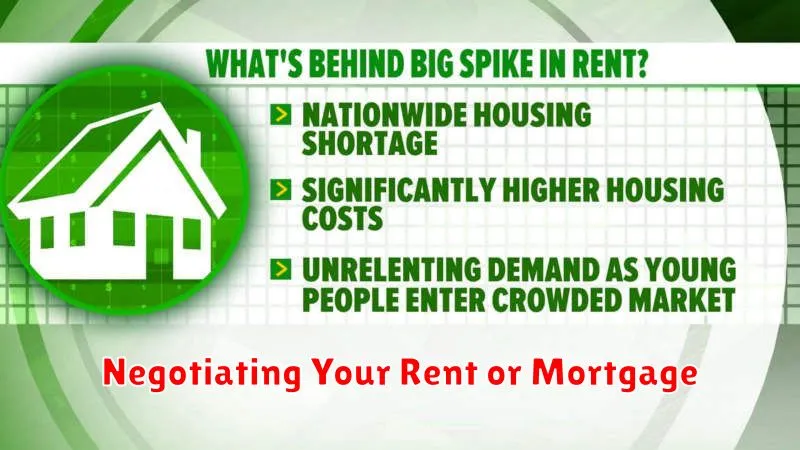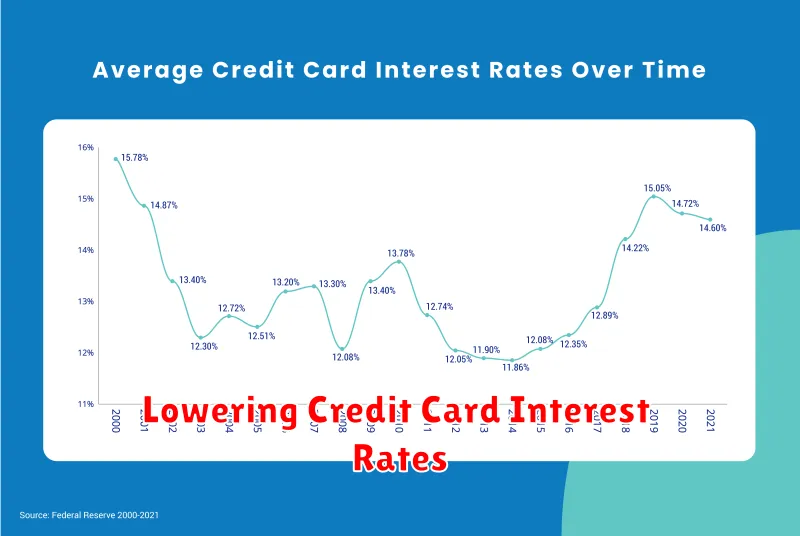Are you struggling to keep up with your monthly bills? Do you feel like you’re constantly falling behind? You’re not alone. Millions of people are struggling to make ends meet each month. But there is good news! You can negotiate your bills and lower your monthly payments. It may seem daunting, but it’s easier than you think. With a little bit of effort, you can save hundreds or even thousands of dollars each year.
In this article, we will discuss proven strategies for successfully negotiating your bills and lowering your monthly payments. We will cover the essential steps from understanding your options to effectively communicating with creditors. Get ready to unlock the secrets of negotiating with confidence and take control of your finances. By the end of this guide, you will have the tools and knowledge to reduce your monthly expenses and build a more secure financial future.
Understanding Your Bills and Expenses
Before you can negotiate your bills, you need to understand what you’re paying for and how much you’re spending. Take some time to gather all of your bills and make a list of your monthly expenses. This includes everything from your rent or mortgage to your utilities, internet, and phone bill.
Once you have a clear picture of your spending, you can start to identify areas where you might be able to save money. For example, if you have multiple streaming services you don’t use, you can consider canceling one or two. Or, if you have a high-interest credit card, you can look for a card with a lower interest rate.
It’s also helpful to track your spending for a few months to see where your money is going. There are many apps and websites that can help you with this. Once you understand your spending habits, you can start to make adjustments to lower your monthly expenses.
Identifying Bills You Can Negotiate
Not all bills are created equal. Some bills are more likely to be negotiated than others. Here are a few types of bills you can try to negotiate:
- Cable/Internet Bills: These bills are often inflated, and providers are willing to offer discounts to retain customers.
- Cell Phone Bills: Similar to cable/internet bills, cell phone providers are also known to negotiate. You can try to get a better plan or a lower monthly rate.
- Insurance Premiums: You may be able to negotiate lower premiums by comparing rates from different providers and by bundling your insurance policies.
- Medical Bills: If you have a high medical bill, you can negotiate a lower price by contacting the billing department and explaining your financial situation.
- Credit Card Interest Rates: You can try to negotiate a lower interest rate on your credit cards by calling the issuer and asking for a reduction.
It’s important to note that not all bills are negotiable, and even when they are, it may take some effort to get a reduction. However, it’s always worth trying, as you could save a significant amount of money over time.
Preparing for Negotiation: Research and Documentation
Before you pick up the phone or schedule a meeting, it’s crucial to do your homework. Thorough research and documentation are essential for a successful negotiation. Start by gathering all relevant information about your bills, including:
- Statements: Collect recent bills and statements, noting due dates, payment history, and outstanding balances.
- Contracts: Review your contracts with service providers or creditors to understand the terms and conditions, including any clauses that may be relevant to your negotiation.
- Market Research: Explore prices and rates offered by competitors in your area. This will give you leverage when negotiating for better terms.
- Financial Information: Understand your current financial situation, including your income, expenses, and debt-to-income ratio. This will help you assess what you can realistically afford.
Once you have gathered the necessary information, organize it into a clear and concise document. This will ensure that you are prepared to present your case effectively and demonstrate your commitment to resolving the situation. Having solid evidence and documentation at your fingertips will strengthen your position and increase your chances of success.
Contacting Customer Service: Tips for Effective Communication
When negotiating bills and seeking lower monthly payments, effective communication with customer service is crucial. Here are some tips to help you navigate the conversation and achieve a favorable outcome:
Be Prepared: Before contacting customer service, gather all relevant information, including your account details, billing history, and any documentation supporting your request. Having this information readily available will help you communicate clearly and efficiently.
Stay Calm and Courteous: While it’s understandable to be frustrated with high bills, it’s essential to maintain a calm and respectful demeanor when speaking to customer service representatives. Remember, they are there to assist you, and a positive attitude can go a long way in fostering a cooperative environment.
State Your Needs Clearly: Clearly articulate your situation and the outcome you’re seeking. Be specific about the bill in question, the reason for your request, and the desired reduction in your monthly payment.
Be Open to Negotiation: Be prepared to negotiate with the customer service representative. This may involve discussing alternative payment options, such as a payment plan, or exploring other ways to lower your overall costs.
Document the Conversation: Keep a record of the conversation, including the date, time, name of the representative, and any agreed-upon terms or actions. This documentation can be helpful if you need to refer back to the conversation later on.
Remember, contacting customer service can be a crucial step in negotiating bills and lowering monthly payments. By following these tips, you can increase your chances of having a productive conversation and achieving a positive outcome.
Negotiation Tactics: Asking for Discounts, Payment Plans, and More
Negotiating bills can feel daunting, but it’s a crucial skill for managing your finances effectively. Armed with the right tactics, you can often lower your monthly payments and save money in the long run. Here are some key strategies to keep in mind:
Asking for Discounts
Many companies offer discounts for loyal customers, early payments, or even for simply asking. Be polite and direct when inquiring about potential discounts. Explain your situation and express your desire to lower your monthly expenses. For example, you could say, “I’ve been a loyal customer for [X] years and would appreciate it if you could offer me a discount on my bill.”
Payment Plans
If you’re struggling to make a large payment, consider negotiating a payment plan. Contact the provider and explain your situation honestly. Be prepared to offer a specific proposal for repayment, including a timeline and potential interest rates. Remember, a payment plan is often a better option than falling behind on your bills.
Bundling Services
Bundling your services, like internet, phone, and television, can often lead to significant discounts. By combining services from a single provider, you may qualify for package deals that offer lower monthly rates. Don’t hesitate to compare prices from different companies to ensure you’re getting the best deal.
Be Prepared to Walk Away
One of the most effective negotiation tactics is to be willing to walk away. If you’re not satisfied with the offer, don’t be afraid to say no and consider other options. Sometimes, a firm stance can prompt the other party to improve their offer.
Negotiating Your Rent or Mortgage

Negotiating your rent or mortgage can seem daunting, but it’s a worthwhile endeavor that can save you significant money over time. While you may not always succeed, having a clear strategy and understanding your landlord or lender’s perspective can increase your chances of reaching a mutually beneficial agreement.
Start by researching comparable properties or loans. This will give you a solid baseline for your negotiation. Look for similar properties or loans with similar terms and rates to understand the current market value. Armed with this information, you can approach your landlord or lender with a confident understanding of what’s fair.
Be prepared to offer a win-win solution. When negotiating your rent or mortgage, it’s essential to think about what’s in it for your landlord or lender. Perhaps you can offer a longer lease or a larger down payment in exchange for a lower monthly payment. Be creative and explore options that benefit both parties.
Don’t be afraid to negotiate. Many landlords and lenders are open to negotiation, especially if you’re a good tenant or borrower. Be polite, professional, and respectful throughout the process. Present your case clearly and be open to compromise.
Lowering Credit Card Interest Rates

Credit card interest rates can be a real burden on your finances, making it difficult to pay off your debt and keep up with other expenses. Thankfully, there are strategies you can employ to negotiate lower interest rates on your credit cards and alleviate some financial pressure.
One effective approach is to call your credit card company and request a lower rate. Be prepared to state your case clearly and concisely, highlighting your strong credit history, responsible payment record, and the length of your relationship with the company. You can also point out that you’re considering switching to a different credit card with a lower interest rate, which might motivate them to retain your business.
Another strategy is to explore balance transfer offers. These offers allow you to transfer your existing credit card balance to a new card with a lower interest rate, often for a limited period. While this can provide temporary relief, be sure to read the fine print carefully, as transfer fees and introductory periods can vary.
Lastly, consider consolidating your debt. This involves taking out a personal loan with a lower interest rate than your credit card and using the loan to pay off your credit card debt. While this can help lower your overall interest burden, it’s crucial to be sure you can afford the monthly loan payments and that the new loan term is favorable.
Remember, negotiation is a two-way street. Be prepared to listen to the credit card company’s counter-offers and be willing to compromise. With persistence and a clear understanding of your options, you may be able to successfully negotiate lower credit card interest rates and improve your financial well-being.
Reducing Car Insurance Premiums

Your car insurance premiums can be a substantial expense, but there are several strategies you can employ to negotiate lower monthly payments.
Shop around for better rates. Don’t settle for the first quote you get. Contact multiple insurance companies and compare their offerings. Online comparison websites can simplify this process.
Improve your driving record. A clean driving record is a significant factor in determining your insurance premiums. Avoid traffic violations and accidents to demonstrate responsible driving habits.
Increase your deductible. A higher deductible generally results in lower premiums. Carefully assess your risk tolerance and financial capacity before increasing your deductible.
Bundle your policies. Many insurance companies offer discounts when you bundle multiple policies, such as auto, home, or renter’s insurance.
Ask for discounts. Inquire about available discounts for things like good student status, safe driver programs, and anti-theft devices.
Negotiate with your current insurer. If you’ve been a loyal customer with a good driving record, you may have leverage to negotiate lower rates with your existing insurer.
By implementing these strategies, you can potentially reduce your car insurance premiums and save money on your monthly payments.
Negotiating Medical Bills and Payment Options

Navigating medical bills can be a daunting task, especially when faced with high costs and complex payment plans. However, there are ways to negotiate these bills and potentially lower your monthly payments. Here are some strategies to consider:
1. Understand Your Bill: Before engaging in any negotiations, thoroughly review your medical bill. Identify any errors, such as duplicate charges or incorrect billing codes. Having a clear understanding of what you are being charged for will help you make informed decisions.
2. Contact the Billing Department: Once you’ve reviewed the bill, reach out to the billing department of the hospital or healthcare provider. Explain your financial situation and inquire about potential payment options, such as:
- Payment Plan: Request a payment plan with a lower monthly payment that fits your budget. Be prepared to provide information about your income and expenses.
- Discount for Prompt Payment: Some providers offer discounts for paying your bill in full within a specific timeframe.
- Financial Assistance Programs: Many healthcare providers have financial assistance programs for individuals with low income or specific medical conditions.
3. Negotiate with the Provider: Be polite and respectful when negotiating. Explain your financial challenges and be prepared to discuss your options. You can also ask about waiving certain fees or adjusting the total amount due.
4. Consider a Medical Bill Advocate: For complex or high-cost bills, consider hiring a medical bill advocate. These professionals specialize in negotiating medical bills on your behalf and can help you navigate the payment process.
5. Explore External Resources: There are organizations that can provide financial assistance for medical bills. Research options such as patient advocacy groups, charities, or government programs.
Remember, negotiating medical bills is a process that may require persistence and patience. By being proactive and informed, you can increase your chances of securing a payment plan that works for you.
Lowering Utility Bills: Energy-Saving Tips

While negotiating with utility providers can help reduce your bills, making energy-saving changes at home can significantly contribute to lower monthly payments. These tips can help you conserve energy and lower your utility bills:
1. Unplug Electronics: Even when not in use, electronics plugged into outlets consume electricity. Unplug chargers, appliances, and devices when not in use to prevent this “phantom load” energy consumption.
2. Switch to LED Bulbs: LED bulbs use significantly less energy than traditional incandescent bulbs, saving you money on your electricity bill. They also last much longer, minimizing the need for frequent replacements.
3. Weatherize Your Home: Seal any gaps or cracks around windows and doors to prevent drafts. Install insulation in your attic and crawl spaces to reduce heat loss in winter and heat gain in summer. A well-insulated home is more efficient and reduces energy consumption.
4. Use Energy-Efficient Appliances: Choose energy-efficient appliances like refrigerators, washing machines, and dryers. Look for the Energy Star label, which indicates an appliance meets specific energy-efficiency standards. Consider using an energy-efficient showerhead to reduce water and energy consumption for heating.
5. Reduce Water Usage: Install low-flow showerheads and toilets to conserve water, which can directly reduce your water heating bill. Also, fix any leaks promptly, as even a small leak can waste significant amounts of water.
By implementing these energy-saving tips, you can significantly reduce your utility bills. Combine these strategies with effective negotiation techniques to achieve maximum savings on your monthly payments.
Automating Bill Payments to Avoid Late Fees
Late fees are a sneaky way for companies to make extra money, and they can quickly add up. Luckily, you can avoid these charges entirely by setting up automatic payments for your bills. Many companies offer online bill pay options, allowing you to schedule recurring payments for your bills. This way, you can ensure that your bills are paid on time, every time.
Automating bill payments can also save you time and stress. You no longer need to manually track your bills and make payments. With automatic payments, you can focus on other important things in your life.
Setting up automatic payments is often easy and straightforward. Most companies have detailed instructions on their websites. In some cases, you may need to sign up for an online account with the company or provide your bank account information.
To ensure your bills are paid on time, it’s crucial to regularly review your automatic payments. Verify that the amounts are accurate and that your bank account information is up-to-date. This way, you can avoid any unforeseen issues and ensure that your bills are paid without any problems.
Maintaining a Positive Payment History
A positive payment history is crucial for your financial well-being. It reflects your creditworthiness and can significantly impact your ability to secure loans, rent an apartment, or even get a job. Lenders and creditors rely on your payment history to assess your reliability and determine the risk associated with lending you money.
Here’s why maintaining a positive payment history is essential:
- Improved Credit Score: On-time payments contribute significantly to your credit score, a numerical representation of your creditworthiness. A higher credit score unlocks better interest rates on loans, credit cards, and other financial products.
- Access to Better Financial Products: A good payment history makes you a more attractive borrower, enabling you to qualify for more favorable loan terms and lower interest rates.
- Increased Approval Odds: When applying for loans, credit cards, or even renting an apartment, a positive payment history significantly improves your chances of approval.
- Lower Interest Rates: A strong payment history demonstrates your financial responsibility, making you eligible for lower interest rates on loans and credit cards, saving you money in the long run.
To maintain a positive payment history, follow these tips:
- Set Reminders: Utilize online tools or mobile apps to set reminders for bill due dates.
- Automate Payments: Enroll in automatic bill payments to ensure timely payments without relying on manual reminders.
- Pay Bills in Full: Avoid carrying balances on credit cards and make full payments whenever possible.
- Track Payments: Keep track of all your bills and their due dates to avoid missed payments.
- Contact Creditors: If you anticipate difficulty meeting a payment, contact your creditors promptly and discuss possible solutions.
By consistently paying your bills on time, you build a strong payment history that benefits you in countless ways. Remember, a positive payment history is not just about avoiding debt; it’s about establishing a solid financial foundation that unlocks opportunities and empowers you to achieve your financial goals.

